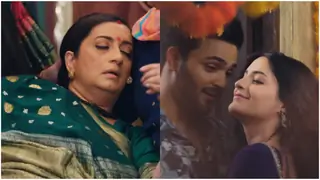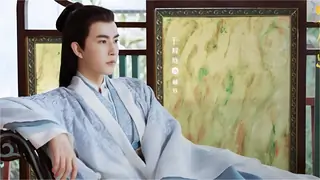| With reality television growing in popularity, children are the new faces of the genre. We examine the phenomenon on Children's Day |
Startline Airtel Super Singer Junior Grand Finale
India seems to have taken wholeheartedly to reality television as millions SMS their verdicts on the eager hopefuls. With the rise in excitement and share in the profit pie, reality TV is working doubly hard to catch its talent as early as possible. And so, in the last couple of years, the new demographic of participants has been children in the age group of eight and 14, doing everything from singing and dancing to matching precocious intellects to auditioning for a role with John Abraham in a movie.
Currently doing the rounds is Sa Re Ga Ma Pa Li'l Champs, hosted by Aditya Narayan and judged by Sonu Nigam and Suresh Wadkar. Joining the show on air soon is Star Plus's Voice of India Chotte Ustaad with Shreya Ghoshal, Kunal Ganjawala and Pritam for judges. Even many of the regional channels have jumped onto the children's contest bandwagon.
The most common rationale that is offered for these contests is that the country's undiscovered stars deserve an opportunity to showcase their talent. Thus, says Sonu Nigam: "This is the age where children will go far if they are given the right inspiration. This competition helps them know where they stand, know what their strengths are." Certainly, it is a persuasive argument. After all, as Surendra Nath S, Executive Producer of ETV asks, what is the point of learning music or any other performing art if it is not being exhibited? In a country where visibility is such a challenge, what better way to bring out young talent than on a national platform? Besides, the argument goes, although one winner is picked at the end, all the participants get their share of the limelight and learn what it takes to be a musician. A representative of Star, for instance, explains: "We believe the show is providing a great platform to showcase young talent and take great care to ensure that the participants see it in that light. While the show will have a winner eventually, the objective is to give such prodigal talent a strong platform."
Let's not forget that in this new reality-dictated age of television, talent hunts don't merely focus on talent, but cover the entire gamut of experiences and skills involved in public performance. Sunil Sharma, whose son Diwakar was a finalist on the last season of Sa Re Ga Ma Pa Li'l Champs, for instance, feels that his son received exposure that wasn't restricted merely to his singing abilities. "The show has shown him (Diwakar) how to work hard, to perform before the public and so on. It has given him a lot of experience and has changed the way he sees his own life. He is more mature now and more willing to work harder to get what he wants," says Sunil.
Not everyone buys this argument, however. Many, such as Nandini Mundkur of the Centre for Child Development and Disabilities, Bangalore, feel that such contests do not account for the emotional vulnerability of children. "Asking children to compete in this manner is grossly unfair. Children of that age are emotionally unstable, and such competitions may scar children emotionally. Children below the age of 12 shouldn't be made to compete, and should be allowed to sing, dance and so on as a hobby," says Dr. Mundkur.
Concurs VJ, singer and former member of Viva Anushka Manchanda, who realised from her own experiences on Channel [V] Popstars that reality television requires a lot more maturity and intelligence than the average teenager, much less a pre-teen, possesses.
"Older people can deal with the whole experience better. I don't think little children are equipped to deal with the stress and criticism involved in such shows," she says.
This argument, however, is countered with the idea that with music the earlier one starts the better, an idea that Anushka too wonders about. "If you look at people like Beyonce, she started her career at five, and she's an international superstar at her age," she says. The argument thus goes that talent alone will not get a child far, and he or she also needs all the right opportunities at the earliest possible time.
Another problem with reality television is how children cope when the experience has ended. "During the show, children would develop a tendency to think of themselves as a star, but after the show has ended they realise that no one really cares about them," points out Dr. Mundkur, arguing that children might find it difficult to return to their regular lives.
Finally, there is also the ethical issue of consent, as one study on children and media by the School of Journalism, Media and Cultural Studies, Cardiff University for the Broadcasting Standards Commission, points out. One question that the study raises is "whether parents are the most appropriate people to give consent for children's participation, especially if parents themselves stand to gain prizes.
And, if parents are not the most appropriate people, then who else should take responsibility?"
RAKESH MEHARhttp://www.hindu.com/mp/2007/11/14/stories/2007111450320100. htm

















